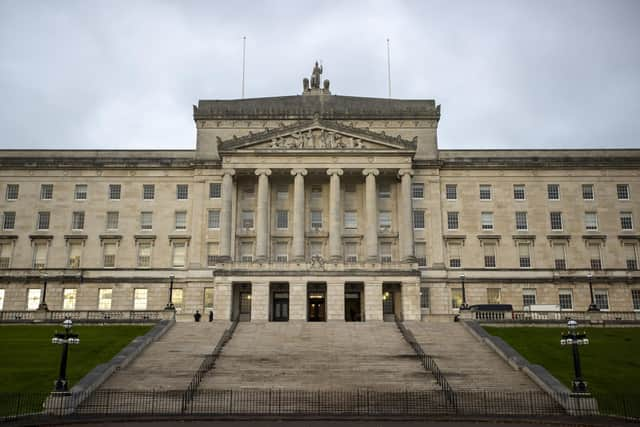Northern Ireland Protocol: Northern Ireland Executive Formation Bill introduced to Commons to push back Stormont Executive deadline
and live on Freeview channel 276
The Northern Ireland (Executive Formation etc) Bill also sees MLA salaries slashed by about a third while the Assembly is unable to conduct business, and take "limited but necessary steps" to maintain public services.
The draft legislation was introduced to the House of Commons on Monday evening; Northern Ireland Secretary Chris Heaton-Harris was not present in the chamber.
The second reading of the bill will be held on Tuesday.


Advertisement
Hide AdAdvertisement
Hide AdIt comes as the Stormont parties failed to establish a new Executive by October 28, some 24 weeks after the last Assembly election in May.
That placed a legal responsibility on the UK Government to hold a fresh Assembly election by January 19.
However, Mr Heaton-Harris ruled out a December election and has instead brought forward legislation to extend the deadline.
The new legislation would extend the period for executive formation by six weeks to December 8, with the possibility of a further six-week extension to January 19.
Advertisement
Hide AdAdvertisement
Hide AdThe Bill also clarifies decision-making powers for civil servants now leading departments, enables a small number of vital public appointments to be made and enable the regional rate for 2023/24 to be set.
A DUP boycott of the devolved institutions has prevented an Executive being formed in Belfast.
The party will not countenance a return to power-sharing until the protocol's economic barriers on trade between GB and NI are scrapped.
Talks are ongoing between the UK and EU over the protocol while a Bill to override elements of the protocol is currently going through the parliamentary process.
Advertisement
Hide AdAdvertisement
Hide AdSpeaking ahead of the introduction of the Bill, Mr Heaton-Harris said: "I urge the Northern Ireland parties to use this extended time to come together and deliver for the interests of all people in Northern Ireland, particularly in this time of rising costs," he said.
"At present, MLAs are not in a position to fulfil the full range of their duties, so it is right that we take steps to reduce their salaries, especially in the current economic climate and in view of the £660 million black hole in the public finances created by poor decisions made by outgoing ministers."
But DUP’s Upper Bann MP Carla Lockhart commented that there is “no solid basis for an Executive and Assembly until the Protocol is replaced with arrangements that restore NI’s place in the UK internal market and our constitutional arrangements are respected”.
The Government and the EU have been aware of the DUP position since February 2021, she said, but have “squandered that time rather than addressing the problem”.
She added: "For those who have forgotten, political progress in NI was hard won and is built on the support of unionists and nationalists.”